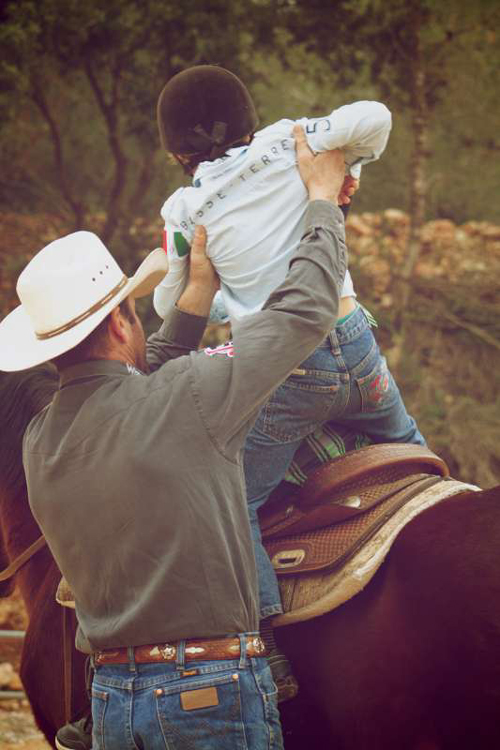I n 1952, the Danish rider Liz Hartel, normally confined to a wheelchair, won an Olympic riding medal in open competition. Since then, the awareness of therapeutic riding and its advantages has risen, and hundreds of therapeutic riding centers have been established throughout Europe and the United States.
n 1952, the Danish rider Liz Hartel, normally confined to a wheelchair, won an Olympic riding medal in open competition. Since then, the awareness of therapeutic riding and its advantages has risen, and hundreds of therapeutic riding centers have been established throughout Europe and the United States.
Physical
The motion of the horse's walk stimulates the pelvis, hips and torso to move in a normal walking pattern and is a great tool for people learning to walk. Riding also improves posture and balance, muscle strength and eye-hand coordination. The motion and warmth of the horse's body relax spastic muscles and provide sensory input.
Psychological
Horseback riding allows control and promotes independence and responsibility. It requires the rider to cope with situations that encourage the development of concentration, perseverance and problem solving. Identifying riding as a sport for "healthy" people is a source of pride for the riders and improves self-esteem and self-respect. Handicap riding competitions have been held in Israel over 15 years.
Additionally, riding allows the individual to develop a relationship with a responsive animal which accepts the rider without judgment. The horse reacts instinctively and therefore provides feedback about the rider's behaviour.
Recreational
One of the most important elements of therapeutic riding is the riding itself. Every individual or parent of a child, with special needs knows that therapy can be difficult and unpleasant. Therapeutic riding instills joy and fun in a non-clinical environment. It often becomes a favorite hobby.
CALL NOW

